Essays & analysis
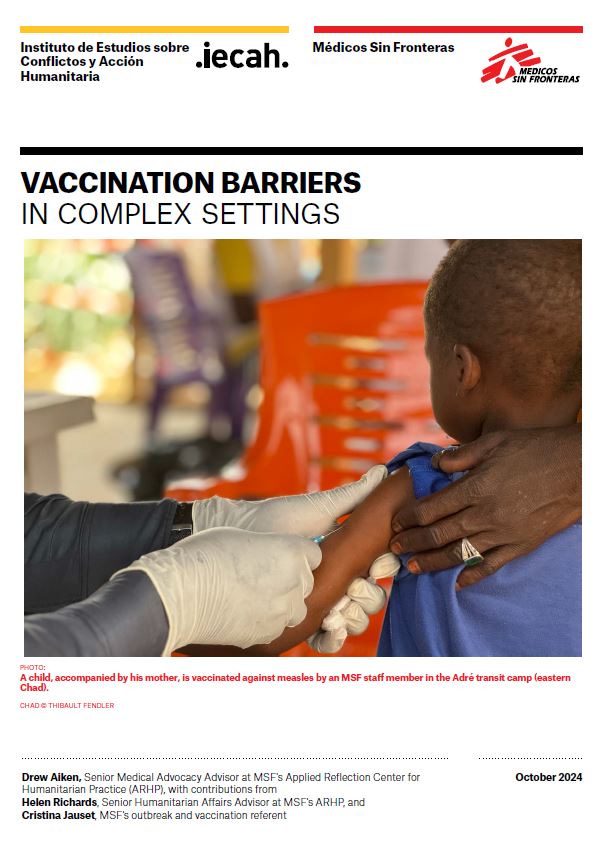
Vaccination barriers in complex settings
Vaccination remains one of the most effective interventions to prevent illness and death. Yet, for people living in conflict and humanitarian settings, access to routine vaccination, vaccination catch up, or needed interventions when outbreak occurs is far from guaranteed.
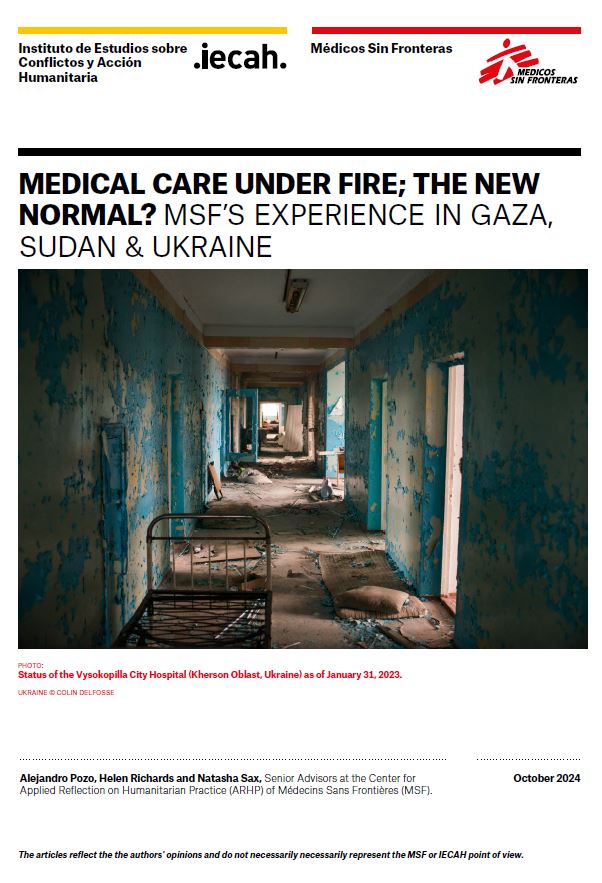
Medical Care Under Fire; The New Normal? The MSF’S experience in Gaza, Sudan & Ukraine
The passing of Resolution 2286 marked a moment of “hope,” and was accompanied by a proliferation of initiatives to report and monitor attacks on medical and humanitarian missions.
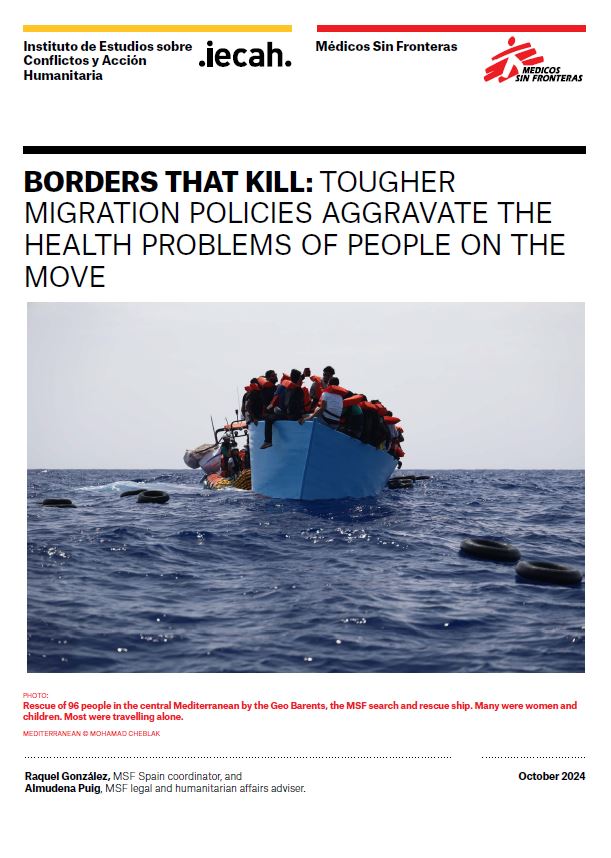
Borders that Kill: Tougher migration policies aggravate the health problems of people on the move
This analysis provides an overview of the situation of vulnerability of migrants, refugees and asylum seekers in different parts of the world due to the tightening of migration policies.
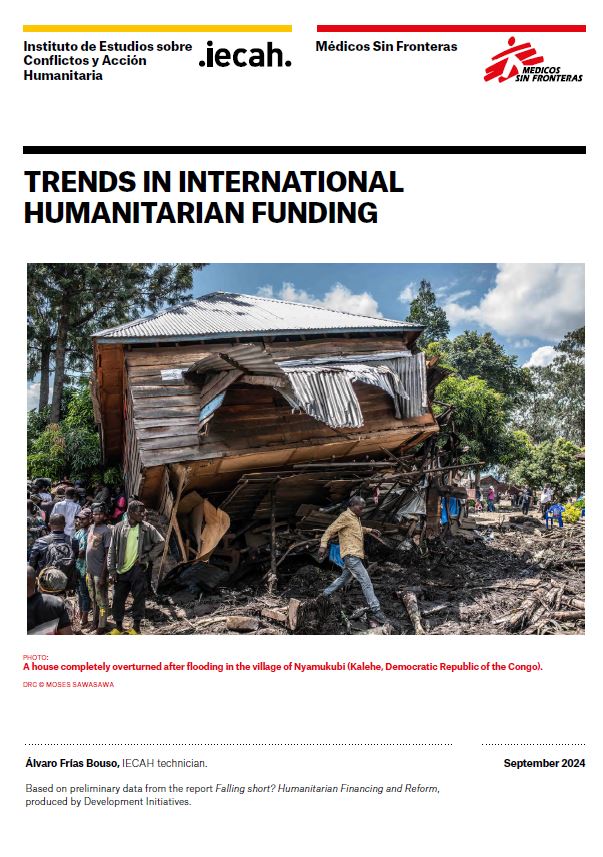
Trends in Global Humanitarian Financing
Despite the increase in funding needs, funds raised for the 45 UN appeals have stagnated compared to 2022, resulting in the largest shortfall since the beginning of the century, with only 45% of funding requirements met.
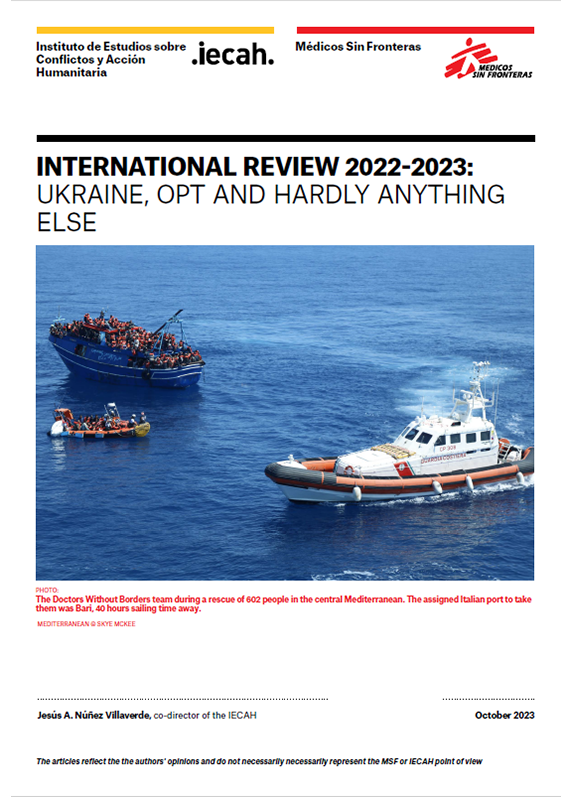
International review 2022-2023
By definition, any review involves looking back to try and identify what has characterised the period under review. More than a chronology of the most significant events, this report serves to try to draw some conclusions that allow us to better understand what has happened and, in the best of cases, to glimpse where efforts should be directed.
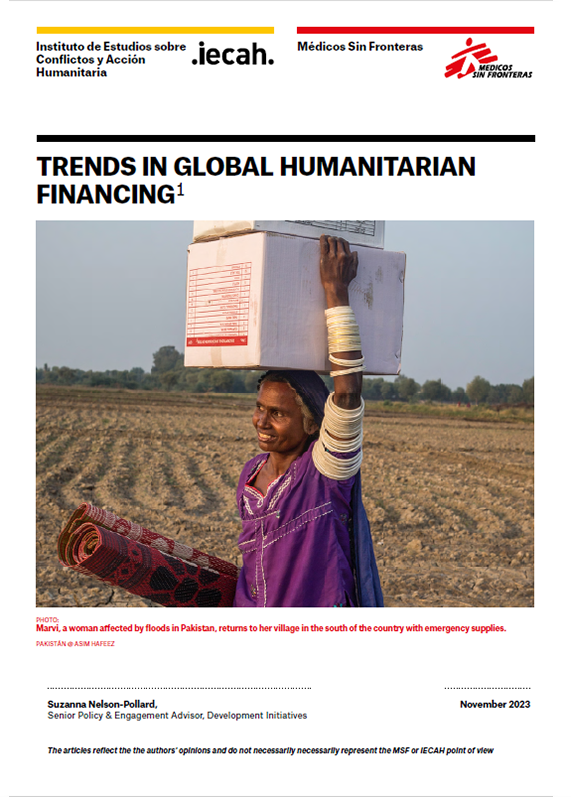
Trends in Global Humanitarian Financing
In 2022, the demand for humanitarian assistance grew larger than ever. There were a growing number of complex, long-term crises, driven by system-wide shocks, as well as new and escalating crises, and worsening crises.
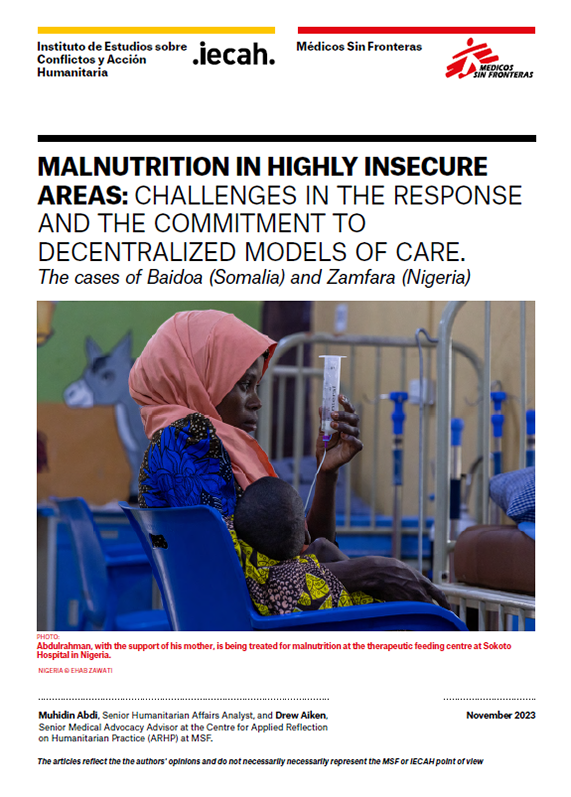
Malnutrition in Highly Insecure Areas
MSF is deeply concerned about the impact of the malnutrition, food insecurity and health crisis we have witnessed in 2022 and 2023 on the populations we serve.
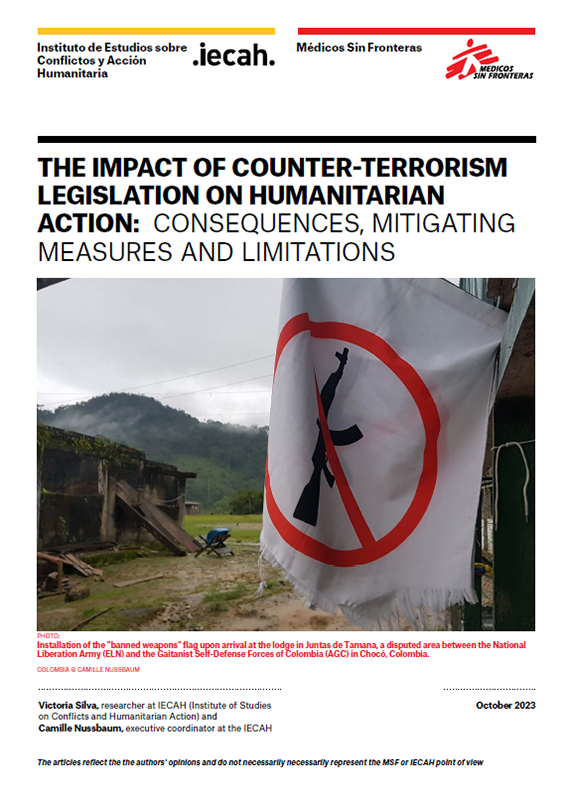
The impact of counter-terrorism legislation on Humanitarian Action
In recent years, there has been growing concern among humanitarian actors, donors and policy-makers about the impact of counter-terrorism legislation on humanitarian work. There are numerous cases in which the work of humanitarian organisations has been affected by this body of (national and international) law.
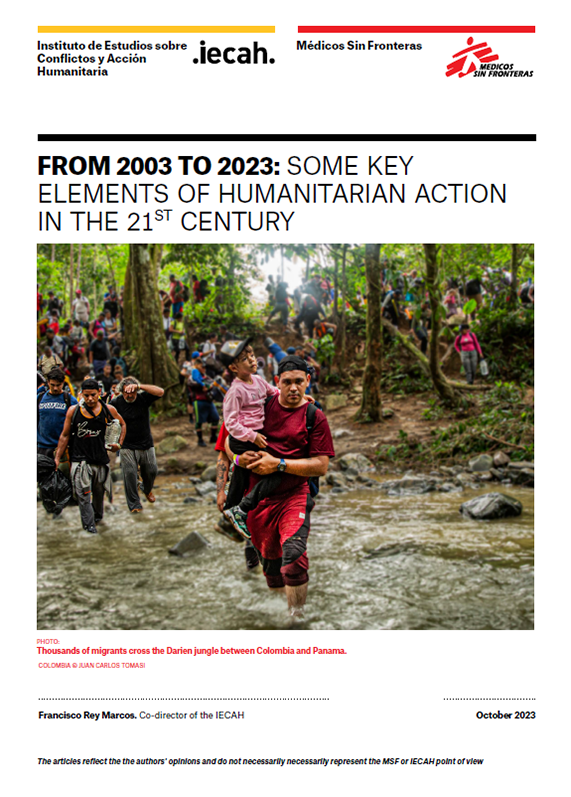
From 2003 to 2023: Some key elements of Humanitarian action in the 21st Century
Since the IECAH and MSF Spain began to prepare and publish the two-yearly Report on Humanitarian Action in the first years of this century, the international scenario has undergone important changes, both at the geopolitical level and in terms of the threats that we face.
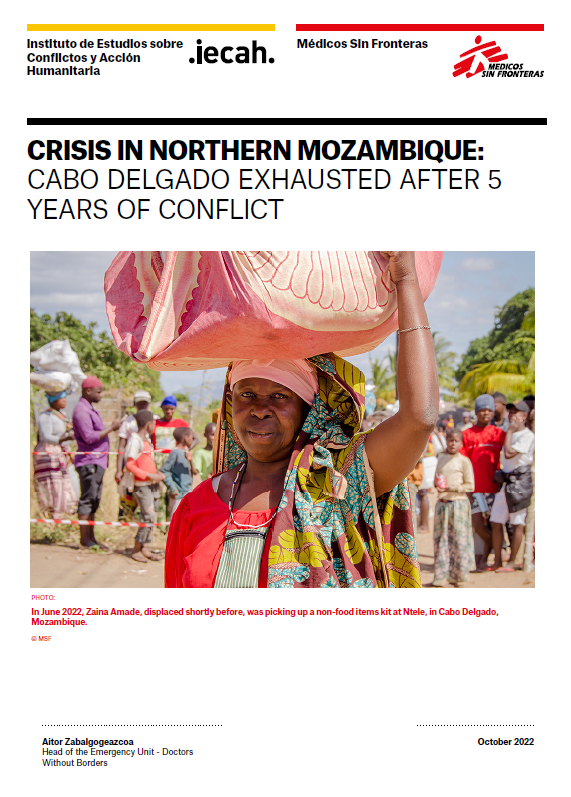
Crisis in northern Mozambique
The displaced families on Maganja beach in Palma district had been waiting for two years to return to Mocimboa de Praia. Since Mocimboa was taken over by a group now calling itself Islamic State in the Province of Mozambique, these families had been living on a strip of beach a few dozen metres wide.
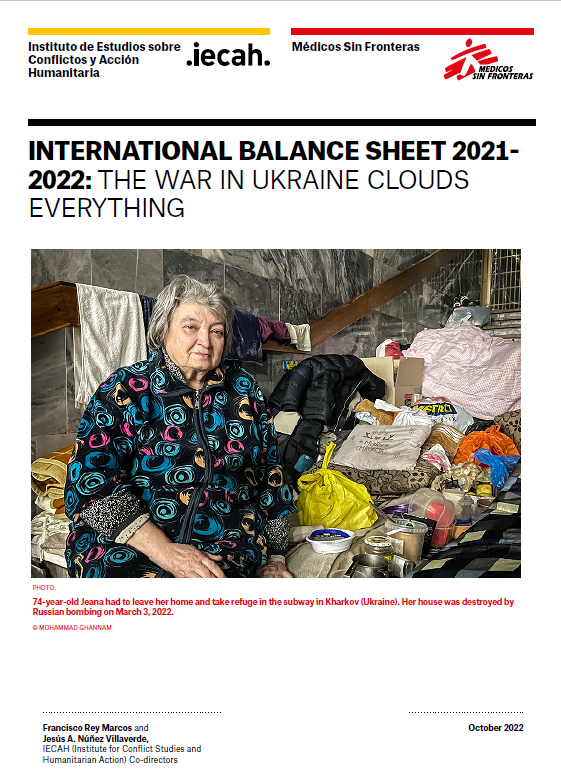
International balance sheet 2021 – 2022
First it was the COVID-19 global pandemic, and then the impact of the new fall of Afghanistan into the hands of the Taliban, now it is the war in Ukraine that has captured the world’s attention.
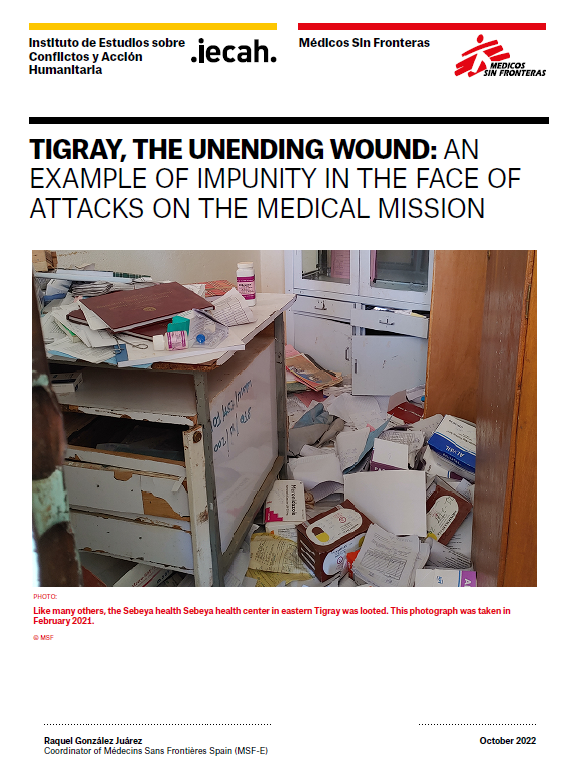
Tigray, the unending wound
This article aims to outline the risks to which medical humanitarian action in conflict zones, in particular Médecins Sans Frontières (MSF), is exposed. Tigray is a painful and open example of the risks we face.
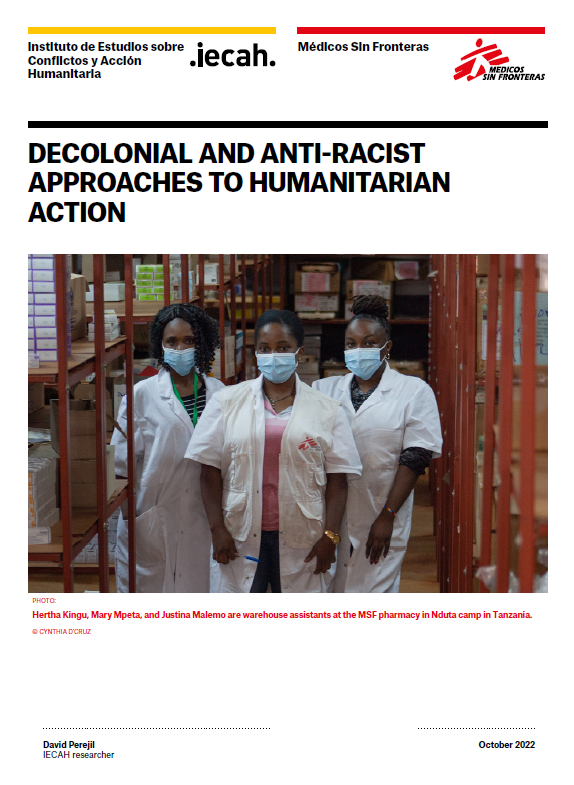
Decolonial and anti-racist approaches to humanitarian action
After decades of post- and decolonial studies, their critiques of the international system have gained weight in recent years.
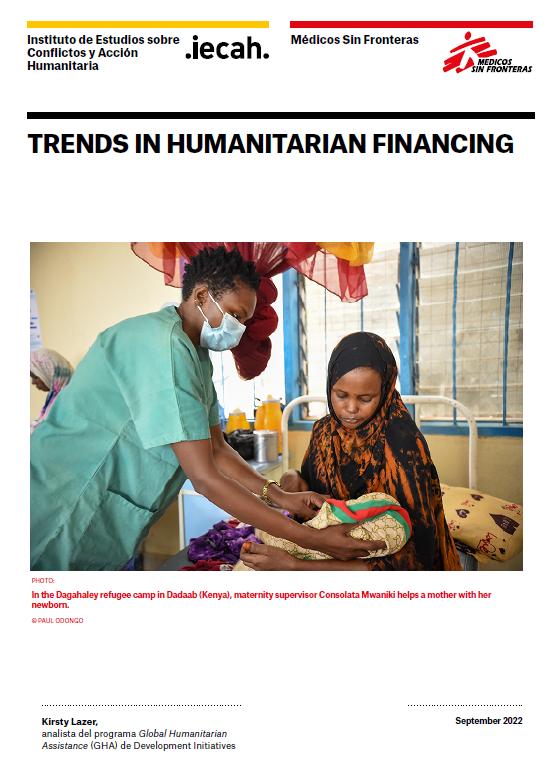
Trends in Humanitarian Financing
Humanitarian financing in the context of rising global need. In 2021, the Covid-19 pandemic continued to overlay other preexisting and emerging crisis risks, driving need and complicating response. Following the rapid rise in demand for humanitarian assistance in 2020, needs remained at historically high levels in 2021.
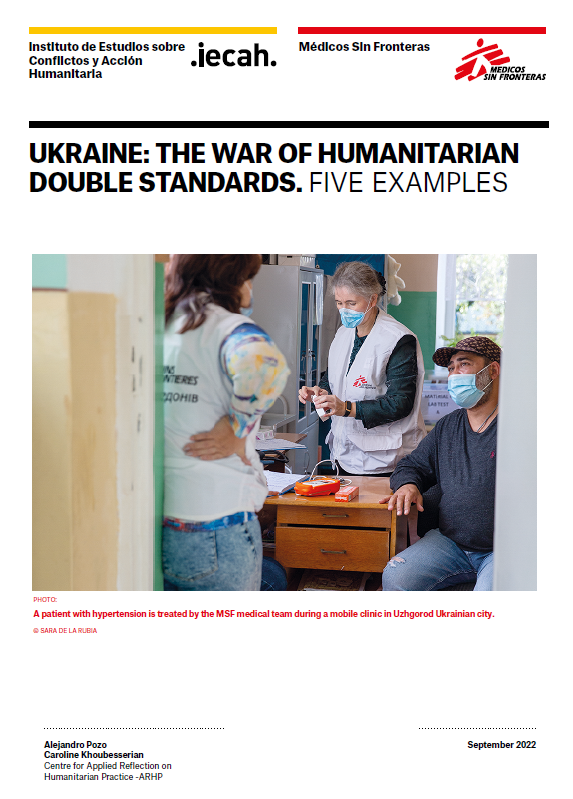
Ukraine: The war of humanitarian double standards
The war in Ukraine, ongoing in 2022, has led to intense levels of suffering for the population, including civilians wounded and killed, families trying to flee to safer areas, and highly vulnerable persons staying in areas amongst heavily destroyed infrastructure and little available services.
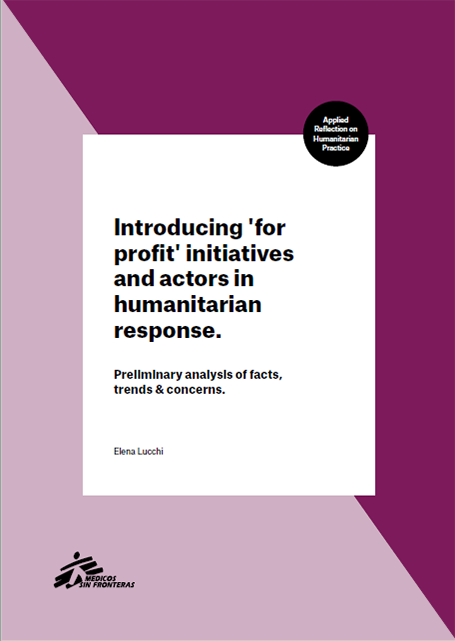
Introducing ‘for profit’ initiatives and actors in humanitarian response
The private sector is increasingly involved in multiple aspects of humanitarian action, and not only as financial contributor. This research maps practices, identifies likely future scenarios regarding the privatisation of the response in emergency contexts and flags concerns regarding practices and trends.
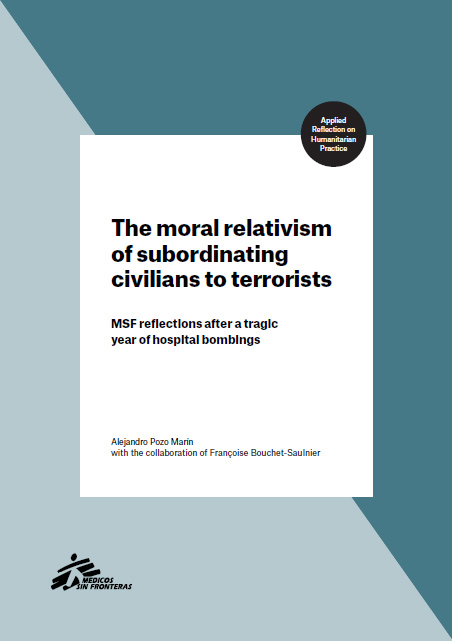
The moral relativism of subordinating civilians to terrorists
Comparative analysis of three tragic hospital bombings (in Afghanistan, Yemen and Syria) that looks beyond their specificities and points to a global climate in which the fight against terrorism has resulted in the subordination of the protection of civilians.
